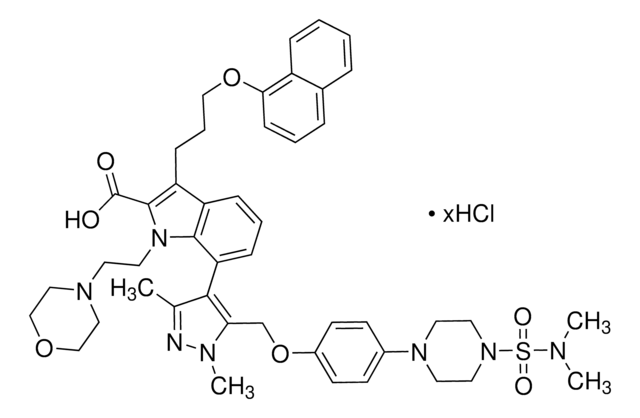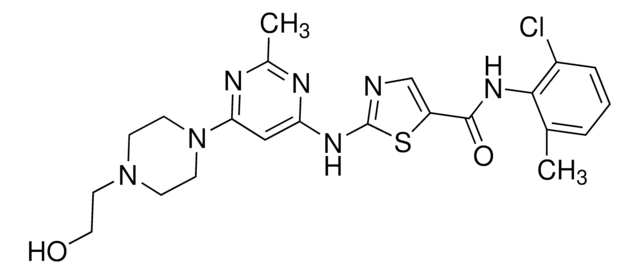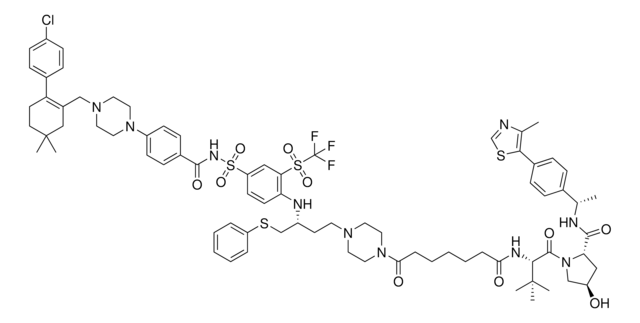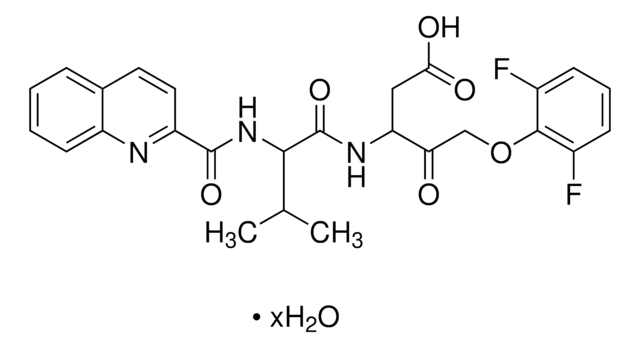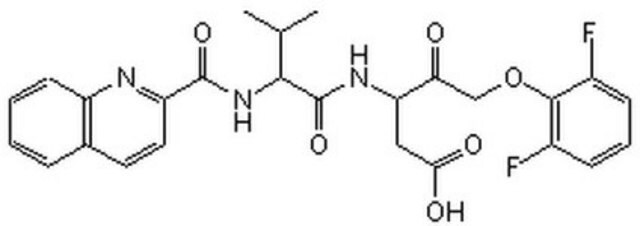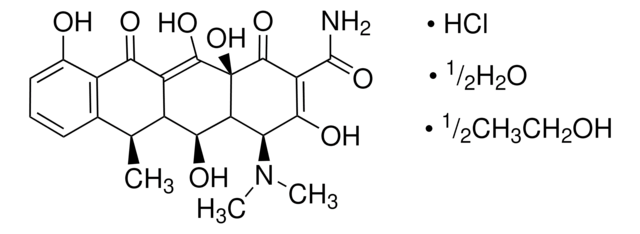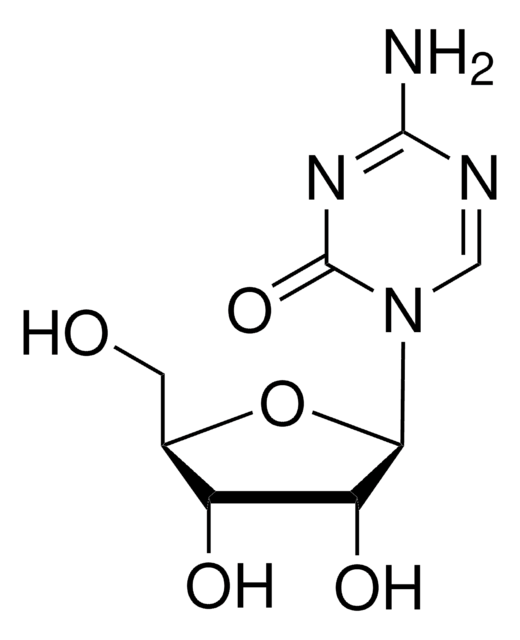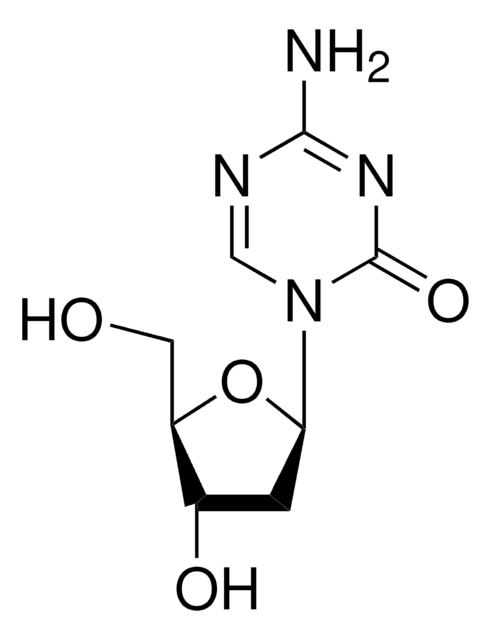197333
ABT-737
≥97% (HPLC), solid, Bcl-2 inhibitor, Calbiochem®
Synonym(s):
Bcl-2 Inhibitor VI, ABT-737, 4-{4-[(4ʹ-Chlorobiphenyl-2-yl)methyl]piperazin-1-yl}-N-{[4-({(1R)-3-(dimethylamino)-1-[(phenylsulfanyl)methyl]propyl}amino)-3-nitrophenyl]sulfonyl}benzamide
About This Item
Recommended Products
product name
Bcl-2 Inhibitor VI, ABT-737, The Bcl-2 Inhibitor VI, ABT-737, also referenced under CAS 852808-04-9, controls the biological activity of Bcl-2. This small molecule/inhibitor is primarily used for Activators/Inducers applications.
Quality Level
assay
≥97% (HPLC)
form
solid
manufacturer/tradename
Calbiochem®
storage condition
OK to freeze
protect from light
color
yellow
solubility
DMSO: 50 mg/mL
shipped in
ambient
storage temp.
2-8°C
InChI
1S/C42H45ClN6O5S2/c1-46(2)23-22-35(30-55-37-9-4-3-5-10-37)44-40-21-20-38(28-41(40)49(51)52)56(53,54)45-42(50)32-14-18-36(19-15-32)48-26-24-47(25-27-48)29-33-8-6-7-11-39(33)31-12-16-34(43)17-13-31/h3-21,28,35,44H,22-27,29-30H2,1-2H3,(H,45,50)/t35-/m1/s1
InChI key
HPLNQCPCUACXLM-PGUFJCEWSA-N
General description
Packaging
Warning
Reconstitution
Other Notes
Oltersdorf, T., et al. 2005. Nature435, 677.
Legal Information
Storage Class
11 - Combustible Solids
wgk_germany
WGK 3
flash_point_f
Not applicable
flash_point_c
Not applicable
Certificates of Analysis (COA)
Search for Certificates of Analysis (COA) by entering the products Lot/Batch Number. Lot and Batch Numbers can be found on a product’s label following the words ‘Lot’ or ‘Batch’.
Already Own This Product?
Find documentation for the products that you have recently purchased in the Document Library.
Customers Also Viewed
Our team of scientists has experience in all areas of research including Life Science, Material Science, Chemical Synthesis, Chromatography, Analytical and many others.
Contact Technical Service